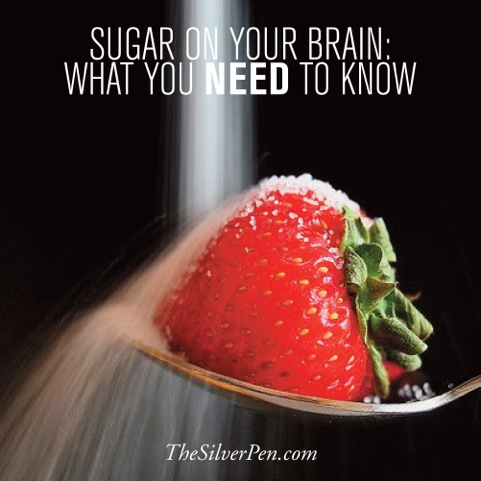I have a sugar problem. There. I said it. I crave it like mad and have never met a HoHo, Ding-Dong or bowl of Malted Milk Ball ice cream, doughnut, cupcake or piece of chocolate salted caramel cake that I don’t like. Even thinking about it makes me drool. This is serious, people.
When people say to me, “I’m not a sweets person,” I look at them with a “WTF?” expression on my face. I just can’t begin to imagine how in the world a person cannot love sweets. It is literally beyond my comprehension!
I have written about my love of – and need to curb – sugar intake here before. However, I need reminding of just how BAD it is for all of us, but especially those of us who have had any kind of cancer. Sugar messes with my mind and always – always! – leaves me wanting more. I’m not the only one, which is why I’m writing about it. Did you happen to see the 2012 article – Public health: The toxic truth about sugar – in the journal Nature? It is quite an eye-opening doozy of a piece that describes sugar as a toxic substance that should be regulated like tobacco and alcohol. Wowsy.
Ok, if I haven’t scared you (by that I mean myself!) enough, here are some other important things to know before chowing down!
1. Sugar creates a vicious cycle of intense cravings. Sugar activates reward signals that are sent to the brain and cause a surge of “feel-good” hormones, like dopamine, to be released (haven’t we ALL been there!). However, when this reward signal is activated too much by or too frequently by sugar a potential downward spiral can begin. Over-activating this reward system will cause loss of control, cravings, and increased sugar tolerance.
2. Sugar intake impairs memory and learning skills. According to a study conducted on rats in 2012 by researchers at UCLA, sugar hinders your brains ability to learn and memorize by literally slowing it down. How does this happen? According to the study, the rats that consumed high amounts of fructose (a/k/a sugar) had synaptic damage to their brain, causing impaired communication among brain cells. Sugar also caused the rats to develop resistance to insulin, which is a hormone that controls blood sugar levels and regulates the function of brain cells. When insulin levels in the brain are lowered due to high amounts of sugar consumption, cognition can be impaired. I wonder if this is a contributing factor to my memory dysfunction. Hmmm….
3. It may cause or contribute to depression and anxiety. If you have ever experiences a sugar crash then you know the drill… Munching on a piece of cake or eating a donut makes your blood sugar level sky-rocket and then plummet! Think: HAPPY –> SAD. When your blood sugar level finally comes back down you may find yourself irritable, depressed, moody, feeling anxious, or fatigued. Heaven (and my family!) know that this is the case with me. Sugar-rich foods mess with the neurotransmitters in your brain that help keep your mood stable.
4. It’s a risk factor for age-related cognitive decline and dementia. Many studies have shown that high sugar consumption can increase the risk of developing neurodegenerative diseases such as Alzheimer’s disease. Researcher’s have found that insulin resistance and high blood glucose levels, which are symptoms of diabetes, are also linked a greater risk for Alzheimer’s. Vey is mere.
If these aren’t big and bold enough red flags for all of us, then I don’t know what are! I now have scared the bejesus out of myself but the Silver Lining is that I will definitely think twice before imbibing.



Holly dear,
I’m on the sweet wagon with you … literally cannot have to many sweets in the house …
However, a dear friend who has diabetes has discovered the best sugar substitute, it is called “Whey-Lo” … hard to find but you can get it on Amazon Prime … so much better than stevia that has a terrible after taste … Hope all is well Im getting ready to move to Pebble in June so very busy here !!! Love all of your inspiring blogs thank you for all the Silver Linings 🙂 xxxooo
Hearts Love,
Joanie
Hi Joanie! Thanks for your note & sharing. Great to hear from you! Excited for your move…
Yes, yes, yes. Limiting or eliminating readily recognizable sources of sugar is easy(NOT) but it is all the incidious places it is hidden that keep many hooked. Ketchup, barbecue sauce, drink mixes, etc. are among the long list of sugar intake not identified as sweets. The solution is to either make your own versions of the staples or research brands which don’t include the ingredient.
BTW, your newsletter is awesome; that is, useful, informative, entertaining, organized, visually pleasing and well written. Keep it up.
For sure, Carolyn. Thanks for your feedback and sweet comments!
Thanks Hollye for sharing this info. I am sending it off to everyone I love.
Of course dear Linda. Hope you are well!